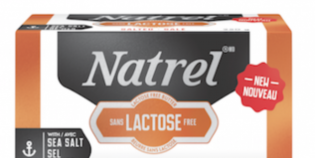Consumers across the globe are still open to sharing their personal information despite concerns over data collection and breaches, according to a new survey from loyalty management company Aimia.
The “Aimia Loyalty Lens Report” examined consumer’s loyalty to industries, engagement with technology, and attitudes towards data privacy. Commissioned by Aimia and fielded by Research Now, the study surveyed 24,335 respondents in 10 international markets including Canada, the U.S., Spain, Italy, Australia, India and the Middle East.
“Consumers are increasingly required to trust companies to handle their personal details,” said David Johnston, group chief operating officer, Aimia, in a statement. “Transparency about how data is being collected and used will become a key differentiator for businesses going forward. Those that are clear and offer a better customer experience by how they use that information will build greater trust and loyalty.”
How much consumers are willing to share, and to whom, varied greatly by industry and country. When asked to rank types of businesses by the degree to which they are comfortable with those businesses handling their personal data, an overwhelming majority of consumers (82%) put banks in the top four, along with supermarkets (64%), mobile phone providers (56%) and their places of work (50%). The survey revealed that Canadian consumers are more loyal towards their banks than their global counterparts (24% versus 17%).
Nevertheless, as the report points out, loyalty should not be mistaken for trust. More Canadians (24%) have closed bank accounts over data privacy concerns than their global counterparts (20%).
At 54%, Canadians are in line with the global average (55%) when it comes to a willingness to share personal information in exchange for relevant rewards and discounts, and top the list as adopters and users of loyalty cards at a whopping 91%.
Credit card loyalty programs are more popular in Canada than most other countries, at 45%, nearly double the global average of 25%. Canadians are also more likely to want loyalty currency as a reward from credit card companies (41%), compared to their global counterparts (27%). Cash back is the most common reward choice globally at 46%.
When it comes to the information consumers around the globe hold most dear, web history and income topped the list at 39% and 30% respectively, with consumers stating they would never share such information. That’s compared with 29% who said they would never share their mobile phone number and 23% who would never reveal their online purchases.
The majority of Canadians (66%) are put off by supermarkets that send coupons to their mobile phones, while 52% of residents in India are comfortable with it. When supermarkets follow up by phone or email after making a purchase, more than half (57%) of Americans view the follow-up gesture as going too far, compared to only one in three (34%) of those in the Middle East.









